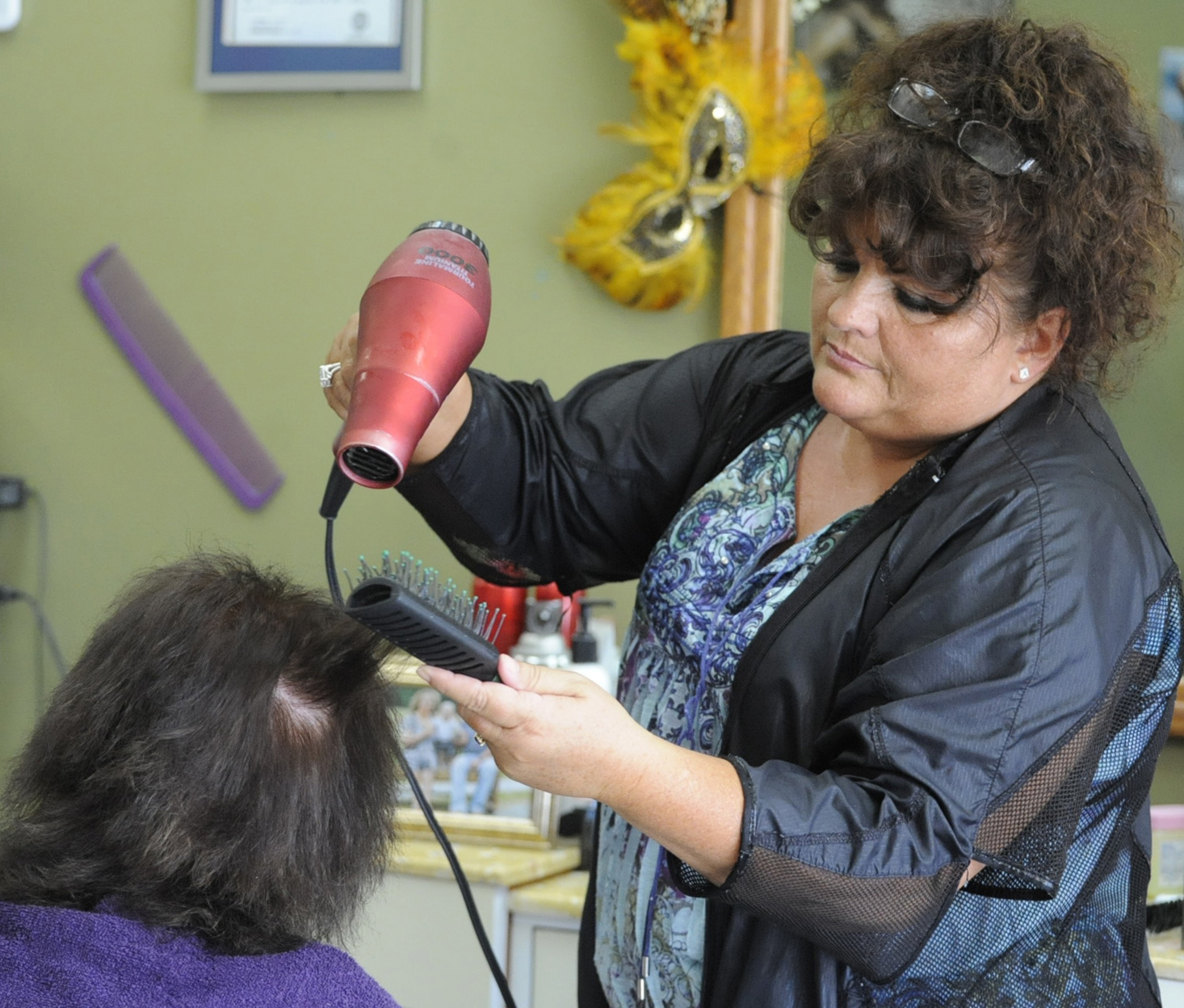BY THE NUMBERSFederal grant money awarded to build Affordable Insurance ExchangesTennessee: $9.1 millionGeorgia: $1 millionAlabama: $9.6 millionSource: The Henry J. Kaiser Family FoundationACROSS THE NATION• 15 states have established state exchanges• 1 state planning for partnership exchange• 18 states studying options, including Tennessee and Alabama14 states with no significant activity, including Georgia• 3 states decided not to create state exchangesSource: The Henry J. Kaiser Family Foundation
One hundred dollars a month.
That's how much money 49-year-old Rena Freeman thinks she could spend on health insurance and still have enough money left to pay the bills at her hair salon at the foot of Signal Mountain and at her home.
Freeman hasn't had health insurance in nine years; her construction-worker husband doesn't have insurance, either. She has various health problems -- including gynecological issues and migraine headaches -- and rarely can scrape together enough money to see a doctor.
Occasionally, when things get bad enough, she ends up in the emergency room.
"They give me Tylenol and send me home; tell me to go see my doctor," Freeman said. "I don't have a doctor."
The last time she checked several years ago, insurance for herself would have cost more than $300 a month. At the time, she was making $7.50 an hour, so the insurance would have sucked up almost her entire paycheck.
"When you get to be my age, you can't go without insurance. You just can't," Freeman said. "When you tell people you don't have insurance, they won't hardly even see you. I try to do everything I can to stay healthy, but I need a doctor."
Freeman hopes Thursday's Supreme Court ruling upholding the Affordable Care Act will make health insurance a possibility. She hopes -- between health insurance exchanges set up in the states and federal subsidies given to individuals -- she can find an insurance plan for less than $100 a month.
The exchanges, scheduled to be up and running by January 2014, are intended to work as one-stop shops for people and small businesses to find, compare and buy health insurance. The idea is that, as a pool in which many insurance companies will be swimming, the exchanges will keep costs down for subscribers by offering different plans with different premiums, deductibles and out-of-pocket expenses.
Now that the Supreme Court has ruled, the spotlight shifts back to the states and what steps they are taking to create the exchanges, a key part of implementing the health care law.
States have until Nov. 16 to decide if they will set up their own exchanges or ask the federal government to do it for them. On Friday, the U.S. Department of Health and Human Services announced additional funding for states to create exchanges and issued guidelines on how the money can be used.
State legislatures must pass laws to authorize the exchanges before they can be launched. Tennessee, Georgia and Alabama lawmakers have not done so.
And many states, including Georgia, have slow-walked exchange implementation in the last six months, hoping the Supreme Court would overturn the law. Now some state governors and legislators are saying they'll wait until after the November presidential election in hopes that GOP candidate Mitt Romney will defeat President Barack Obama and Congress will repeal the Affordable Care Act.
Georgia Gov. Nathan Deal is among that group. Georgia has taken only $1 million in federal funding and has done little to set up a state exchange.
"We are not moving ahead on exchanges at this time," Stephanie Mayfield, Deal's spokeswoman, wrote in an email in response to questions from the Chattanooga Times Free Press. "The General Assembly will not be in session until early next year."
Tennessee has taken about $9.1 million in federal funds and has set up a framework for the state exchange. Tennessee officials could not be reached for comment Friday but have said they are confident the exchange will be ready in time to meet federal deadlines. Still, the state must wait until the Legislature returns in January to complete it.
Last week, before the Supreme Court ruling, Republican Gov. Bill Haslam told the Times Free Press that if the law were upheld, Tennessee was prepared to implement health exchanges and other elements of the law.
"I think we've played this right, in the sense of being ready either way it goes," Haslam said.
Alabama has used about $9.6 million in federal funding and also is setting up an exchange. Republican Gov. Robert Bentley, a physician, created a commission in 2011 to recommend an exchange, but he successfully opposed efforts by some legislators to enact one in May, according to The Associated Press. Critics said the bill would have limited the exchange to companies operating statewide -- there's only one at this point -- but Bentley said it was premature to act before the Supreme Court ruled.
After the ruling, Bentley seemed to follow the same path as Deal, saying the health care act "is the single worst piece of legislation to come out of Congress. This law must be repealed."
States can apply for exchange funds through the end of 2014, according to the information released Friday.
Previously, Obama administration officials have said that, if a state does not have an exchange in place by the time of the deadline, the federal government will step in. But a state can assume responsibility later for its exchange.
